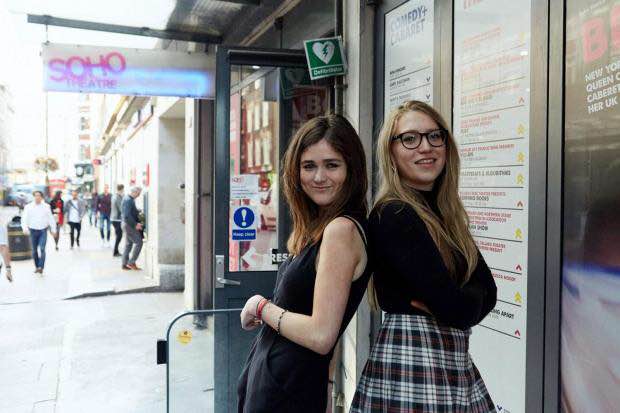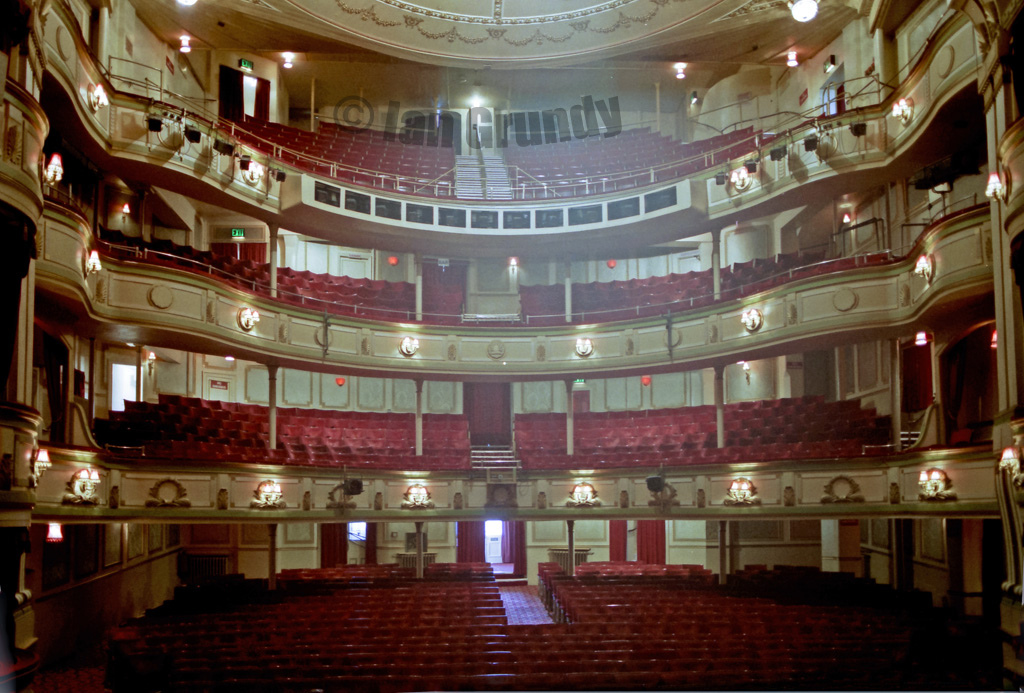Despite women making up the largest proportion of theatre-goers, there still remains a gendered 2:1 ratio when it comes to the industry itself. I don’t need to tell you which gender is currently monopolising theatre jobs. The imbalance of men and women in theatre extends past actors through to writing, directing and producing. Enter Damsel Productions, the theatre company set up by Hannah Hauer-King and former Sussex student Kitty Wordsworth. The company is made up of an all female team, and stages plays exclusively written by women, with stories that centre around women’s voices and experiences. “The company formed quite organically,” Hauer-King, co-founder and director, tells me. “We were doing Dry Land [by Ruby Rae Spiegel] in 2015 at Jermyn Street, which was sort of my first professional production in London and Kitty was producing it and we realised it would probably be a good idea to set up a company to protect the production and give it a foundation. We assembled this team of all female artists without necessarily meaning to; it was just the people we were excited to work with.” Dry Land, which discussed issues surrounding women such as sexuality, body image and abortion, was met with a mixed response. The idea that topics that are central to many women’s lives were controversial only spurred Hauer-King and Wordsworth on further. “I was like, an all female theatre company that puts on shows exclusively by women, that’s not radical”, Hauer-King says. “And yet, people were like ‘oh my god, it’s so great you’re doing this, it’s so positive, we need more of this’. And we did that, and since then we’ve adopted that primary ethos for the company, and since then been developing and finding out what work we want to do and how we want to evolve as a company and work.” Perhaps the need for companies such as this was even greater than the women had imagined; perhaps, too, women’s voices, and the content of their speech are still perceived as that little bit louder.
Damsel, despite its being a fairly new company, has already staged three plays. All of them are recent works by fairly young artists. I ask if this is intentional. “I think it’s been quite natural, the fall into new writing”, Hauer-King tells me. “Because the writers we know and are connected to are younger, it’s more likely that their work is new. We’re definitely not averse to doing modern classics or even classical texts but I’m really interested in this idea of why this play, why now? When you take on someone’s writing that’s been written in the here and now, there’s hopefully some degree of urgency about it. And, you know, we’re certainly not ageist, but I do think it’s nice to give younger people opportunities to kind of break into the industry.” Hauer-King has also previously worked as a resident assistant director at The Soho Theatre, which focuses on new writing. “Listen”, Hauer-King assures me, “if I can find a modern play that’s really urgent, and bring it into the now, then definitely. But I think the work that we gravitate towards just happens to be new writing”. This gravitation is certainly, in this writer’s opinion, a positive. Most of the writers that Damsel has worked with are in their twenties, and their work is injecting a relevant, and, to borrow Hauer-King’s word, urgent energy into the theatre industry.
I have often found that when a work decides that it will focus on women, there is a limited number of themes that can be included. These are commonly the painful and traumatic events that many, but not all, women go through in their lives. There is a complicated tug between wanting to gives space to discuss difficult and oft-ignored topics like rape and abortion, and not only talking about rape and abortion when centering women. I asked if this tug, this pressure, is felt by the team. “We want to do the work that women want to create. We want to empower the voices and experiences of women regardless of whether there’s been trauma”, Hauer-King tells me. But, in truth, it is often the trauma and adversity that inspires writers into action, she says.
Another gendered pressure felt by the artists that make up Damsel is the “pressure to tell the story of all women. We did a play about a young single mother [Phoebe Eclair-Powell’s Fury] and some people kind of said, ‘well what about these young single mothers who are doing fine, or what about this young single mother who is in a totally different context, et cetera’. I did feel the pressure to voice the experiences of all women instead of a woman. So that was quite hard.” This pressure perhaps speaks, in part, to the failure of many to see women as individuals, rather than symbols for their entire gender. “Another massive pressure put on us is that if we’re going to put women centre stage they’ve got to be nice”, Hauer-King laments. “Or they have to be vulnerable, or they have to be victims. And Sam, who was our protagonist, she did unfortunately become a victim, but she definitely was not an easy woman, and she was flawed because human beings are flawed.” Co-founder and producer Kitty Wordsworth agrees, commenting that “there is pressure on theatre makers to portray women in the most palatable way possible, and this means they [female characters] get pigeon-holed into one-way of being. Damsel works to create a platform on which female characters and artists can be celebrated in all their complexities”. Knee-jerk reactions to “difficult women” are, however, what excites and inspires this company. “What I like is that we get a lot of dialogue after our shows. I’d much rather people coming out feeling incensed rather than coming out being like, ‘cool, shall we grab a pint?’ So we’re really into our Q&As and feedback sessions. We had a priest who came in and was railing against Sam [of Fury], it’s fabulous, you know, good!” As mentioned earlier, women make up the largest proportions of theatre audiences, with The Guardian figuring it to be around 68%. This plays into one of the largest challenges faced by Damsel, who are keen to “not just bring in and preach to the converted, and sort of bring in people who will disagree with us”.
What does the future hold for this impressive and exciting young company? “I’m really interested in developing work about queer women,” says Hauer-King. “I think there’s a lot of material around gay men, which is great, but there’s very little about gay women. And I had originally always though if I could set up a company, it would be an LGBTQ+ all-female company.” Another exciting thing on the horizon is musicals. “I know it isn’t very cool or sexy to say, but I love musicals, and the sort of challenge is there aren’t many musicals written by women, so a huge research process for me at the moment has been looking for musicals written by women”.
Companies like this one are hugely important. We need to make a conscious effort to spread the weight evenly in industries that have traditionally favoured men. We need to give women more space to explore their identities and struggles. As Wordsworth tells me, “We are just one cog in a very powerful and active movement towards better and more realistic representation in theatre (ERA/ Act For Change/ National Theatre’s commitment to 50/50 gender representation of directors and living playwrights by 2021). It’s important that companies like Damsel exist as we are part of a rebalancing – we employ women, produce women’s plays and present real and provocative aspects of the female experience, making sure that theatre reflects society more honestly, both on and off-stage”. So far, Damsel are doing a very good job of exactly that.




